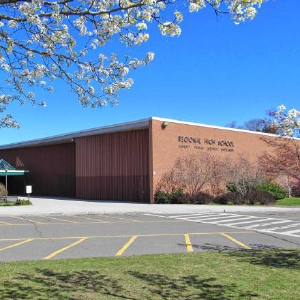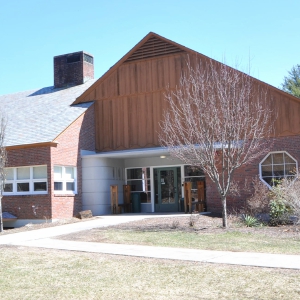Bill eyes on-campus safety net for students in recovery
| Published: 05-31-2023 11:53 AM |
BOSTON — On college campuses, where drinking and drugs are often a pervasive part of student culture, students recovering from addiction face high risks of relapse and social isolation, according to supporters of a bill that would create a safety net for these individuals.
The Sen. Rebecca Rausch bill (S 847) would require all public higher education institutions that provide housing for students to establish a recovery-focused housing program on campus, where students could live in an alcohol- and drug-free environment.
It would also require schools to offer services for students in recovery, including onsite counseling, mentoring and peer support services. The bill also mandates that public colleges and universities must provide overdose training to students, faculty and staff, including making Naloxone, which reverses opioid overdoses, more available on campuses.
“We know that this is reality, we know that our higher education students are struggling with substance use disorder, and this creates a really difficult ... harmful environment for people in recovery,” Rausch said to the Higher Education Committee at a hearing on Tuesday. “College campus life both encourages substance use in the first place through peer pressure and threatens sobriety and recovery.”
The Needham Democrat said many public universities offer substance use intervention programs, but that recovery housing is not guaranteed for students.
Sarah Bagley, associate professor of medicine and pediatrics at Boston University Chobanian & Avedisian School of Medicine and physician at Boston Medical Center, said she often sees young people struggling with addiction who are working toward complete abstinence from drugs or alcohol.
“For those individuals, ensuring that they have a place to live that feels safe is essential. They will continue to engage in the world and be exposed to alcohol and drugs, but they deserve to have an option to live in a space that feels safe for them and optimizes their recovery and allows them to participate in their education,” she said.
According to the most recent data available from the Department of Public Health, Massachusetts residents under 25 years old represent only 1% of all deaths, but this age group makes up 4% of overdose deaths in the state.
Article continues after...
Yesterday's Most Read Articles
 South Hadley’s Lauren Marjanski signs National Letter of Intent to play soccer at Siena College
South Hadley’s Lauren Marjanski signs National Letter of Intent to play soccer at Siena College
 LightHouse Holyoke to buy Gateway City Arts, expand offerings and enrollment at alternative school
LightHouse Holyoke to buy Gateway City Arts, expand offerings and enrollment at alternative school
 Treehouse, Big Brothers Big Sisters turn race schedule snafu into positive
Treehouse, Big Brothers Big Sisters turn race schedule snafu into positive
 South Hadley man fatally shot in attempted robbery
South Hadley man fatally shot in attempted robbery
 Granby man admits guilt, gets 2½ years in vehicular homicide
Granby man admits guilt, gets 2½ years in vehicular homicide
 Area briefs: Transhealth to celebrate 3 year; Holyoke to plant tree at museum; Documentary film about reparations focus of Unitarian talk
Area briefs: Transhealth to celebrate 3 year; Holyoke to plant tree at museum; Documentary film about reparations focus of Unitarian talk
Deb Schmill of Needham told committee members the story of her daughter, who died of a fentanyl overdose in 2020 at 18 years old.
Schmill’s daughter, Becca, had struggled with substance abuse disorder since she was 15, when she turned to drugs after surviving a sexual assault, she said. After graduating from high school, Becca chose to defer her college acceptance one year because she “knew that the normalization of drug and alcohol use on college campuses made the environment too risky for her.”
“It is not uncommon for high school students in recovery to feel that higher education is not within their reach,” Schmill said. “I speak today as a parent whose forever 18-year-old daughter never had the opportunity to go to college. But if she had, I believe the provisions in Senate bill 847 would have given her a chance to succeed there.”
Bagley added that the education aspects of the bill would help educators and faculty know how to respond to emergency situations — but it would also help students learn more about the potential harms of drugs such as fentanyl, which is often hidden within other drugs and is much more deadly.
New Jersey has implemented a similar law, Rausch said. At Rutgers University, students who live in recovery housing have an average recovery rate of 95% and a 3.2 average GPA.

 Amherst regional district towns seek middle ground on school increase
Amherst regional district towns seek middle ground on school increase Leverett Town Meeting voters will decide cease-fire call, budgets, town elections
Leverett Town Meeting voters will decide cease-fire call, budgets, town elections  A Look Back: April 22
A Look Back: April 22 Regional farming alliance strengthens educational, networking opportunities for apprentices
Regional farming alliance strengthens educational, networking opportunities for apprentices
